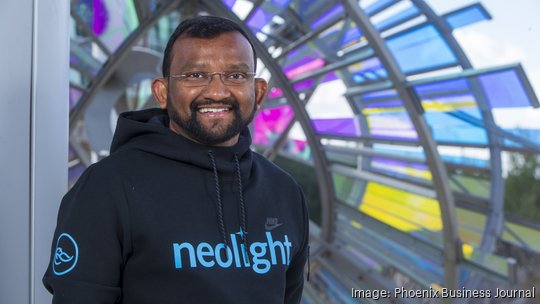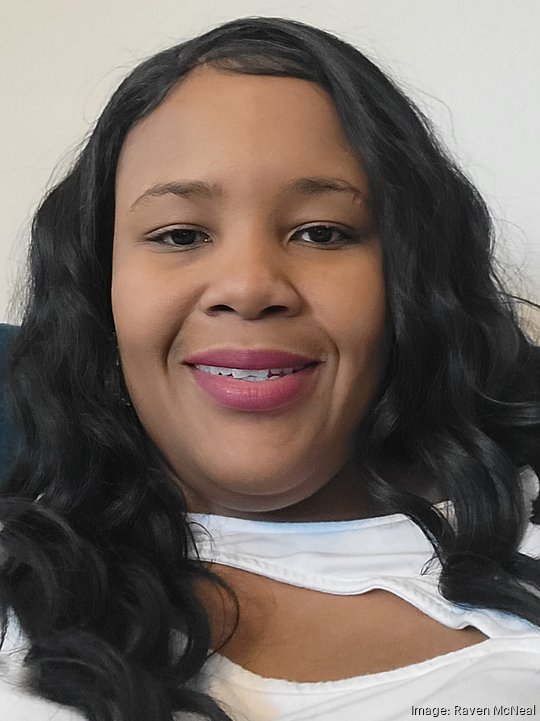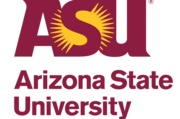Imagine having a premature newborn whose dark retinas – the thin layer of nerve tissue lining the back of the eyeball – need to be checked to make sure they are properly developing, but the only retinal imaging system in the world able to do this only works on lighter retinas.
That was the case just a few years ago for hundreds of thousands of babies with dark retinas born prematurely in the United States. That is, until the co-founders of NeoLight, a Valley company that develops tech-driven neonatal equipment, developed an apparatus that works with all retinas.
It’s these types of health care dilemmas that drive diverse tech innovators to find breakthrough solutions.
People of color are underrepresented in the tech industry – according to a 2022 report from Zippia, an online job recruitment and data collection service, 62% of U.S. tech jobs were held by white Americans, compared to Asian Americans (20%), Latino Americans (8%) and Black Americans (7%).
What's more, a recent report from Lendio ranked Arizona in the bottom half of U.S. states in terms of support for minority businesses. The report noted that minorities own 18.2% of startups in the state less than two years old.
Yet three diverse-led companies in the Valley are going against the odds and aiming to narrow the gap on health care access, and they are leveraging tech to do it.

NeoLight: Shedding light on advancing neonatal care
Retina imaging is just one of the technological advances that NeoLight is making in neonatal care.
“NeoLight uses the power of light," said CEO Vivek Kopparthi, who co-founded the company with three others in 2014. “Whether it's for treating jaundice or for capturing an image of a baby's retina, we are engineers that play with light in order to come up with the most innovative solutions possible to solve some of the world's biggest problems.”
For every 4 million children born in the U.S., 20% are premature, Kopparthi said. A majority of these premature babies do not have fully developed eyes and need retinal imaging to check them. Currently, there are only two companies in the U.S. that have a camera to look at preterm babies’ eyes, and the one that has been around for more than 20 years, does not work on melanated retinas, Kopparthi said. But NeoLight developed the patented Icon Ophthalmic Imaging System that works on all retinas.
“Talk about minorities and talk about focusing on racial disparity – Stevie Wonder was born blind because of this exact disease we're trying to solve. It's called retinopathy of prematurity,” said Kopparthi, whose own daughter was born prematurely. “It's just frustrating for me, and I can't sleep at night thinking that the gold standard does not work on dark retinas. It’s just insane. That's just not fair.”
Originally from Chennai, a city in the southern part of India, Kopparthi conceived the idea for the Scottsdale-based NeoLight after moving to Arizona in 2013 to get his master’s in business at Arizona State University.
NeoLight, which was named a Startup to Watch by AZ Inno earlier this year, was awarded a $25,000 grant from ASU’s Edson Student Entrepreneur Initiative, where Kopparthi learned to file a patent and set up a company.
“ASU has a program to support entrepreneurs of every background, every kind, should they have a good honest concept, and we had one, presented it, they gave us a seed funding and that's how we got started,” Kopparthi said.
Kopparthi and his co-founders, including Deepak Shyam Krishnaraju – who is the lead research and development engineer, and only remaining co-founder – were motivated to launch the health-tech company to treat jaundice, a disease that affects 60% of newborns around the world.
The resulting product was Skylife, a portable device that is small enough to travel with doctors to remote locations, which is a drastic change from older models that were five-foot tall, gigantic, bulky machines with 300 LEDs. Kopparthi described Skylife as being so user-friendly that an eighth grader could operate it.
NeoLight working on other patented technologies
Similarly, the Icon imaging system – in comparison to its 20-plus year predecessor that had to be transported in a six-foot cart on a truck – has been compressed to the size of a small backpack that can fit into a suitcase.
Kopparthi said he fell in love with the idea of building a company that helps with newborn conditions. But his mission to help babies around the world, would hit close to home in 2019 when his daughter was born prematurely at 30 weeks and was in the NICU for eight weeks.
“I was able to get a Ph.D. on how NICUs work, because I literally lived there for about eight weeks,” Kopparthi said. “It gave me a very fresh perspective into all the other challenges in the neonatal intensive care unit.”
The startup has developed other patented technologies to detect and treat conditions such as shaken baby syndrome, abstinence syndrome for opioid addicted babies as well as a machine to promote oral feeding called the Pacifier Activated Lullaby.
“The innovations we've come up with are clinically significantly innovative. I'm really not trying to sell on hope or trying to sell cryptocurrency,” Kopparthi said. “This is a real, legitimate solution and it is exciting because I have the opportunity to change the standard of care for the NICU that can remain for the next 50 years, even 100 years – even after I pass away. It is a unique legacy and I see a lot of people share that same legacy and mission with me.”

RoviCare: Simplifying the patient journey
A hospital visit also served as inspiration for Tempe-based RoviCare, an automated patient management system, which was co-founded by Pankaj Likhmania, a software engineer and Pankaj Jain, a pediatric cardiologist.
When his second child was born, Likhmania arrived at the hospital at 10:30 a.m. on discharge day with the expectation that he would be able to check out his family at 11 a.m. Likhmania recalled completing discharge papers for his now six-year-old son – a newborn at the time – and having his then 18-month-old daughter in tow.
That quick checkout turned into a four-hour process, Likhmania said. Without gear for an extended stay, such as food and water for his daughter, the father of two became extremely frustrated. But the experience would spark Likhmania’s entrepreneurial spirit.
“RoviCare stemmed from my personal frustration and experience with health care,” he said. “So that really led me to start the company.”
Millions of people are admitted and discharged from health care facilities per year and the process can be daunting considering all the paperwork that is required. According to Software Advice, a company that provides advisory services, research and user reviews on software applications for businesses, practices that fail to address patient frustrations could lose up to 48% of their patients per year, and impact the ability to retain, attract and satisfy patients.
RoviCare has created a streamlined method through automation to help alleviate some of the dissatisfaction and inconvenience patients experience during health care visits, which could positively impact patient return rate, especially in communities more reluctant to participate in routine visits.
Likhmania said that a majority of patients go through multiple providers, and whether it’s a primary care physician, a specialist, emergency visit or rehab facility, Rovicare is set up to handle all the coordination.
“The entire coordination is done automatically through RoviCare,” said Likhmania. “It's completely automated, so think of it like using Expedia – before we were all depending on the travel agent to book our groups and now we can do it all by ourselves.”
RoviCare eyes $1M revenue in 2023
Despite his company's recent successes, Likhmania said funding was an obstacle in the beginning.
“Arizona is just getting used to software startups,” Likhmania said. “So we started contacting lots of health care executives and providers through our network, and that's how we eventually conquered and were able to raise the money. But for sure, it was very challenging.”
Now in its fifth year of business, RoviCare is expected to make $1 million in annual recurring revenue in 2023.
Likhmania has a few suggestions to guide tech sector entrepreneurs looking to bring their big idea to fruition.
"First, research the problem. You need to understand the problem very, very well. Second, find the people who can connect you to the bigger network – once we had one or two of those key connections, things started happening," he said. "Third, listen to your customers – if it’s just two customers or 10 customers – spend time with them and understand what problem you're solving for them and what else can you do for them, if you do it, you can be very, very successful,” Likhmania said.

Heal Me Fit: Wellness management for the trucking industry
Before moving to the Valley nearly five years ago, Raven McNeal was working as an outside sales rep and was driving over 100 miles a day visiting clients. She noticed that she was gaining weight and became concerned about her health after a back injury. While going through physical therapy she was rear ended and suffered additional injuries.
“I hurt my neck and my back and I ended up in physical therapy multiple times for the same injury. I didn't see a way to get better,” McNeal said. “I started using wearables – they were newly introduced to the market at the time – to start tracking my activity and making sure that I was walking more instead of sitting in the car.”
Inspired by her experience with wearables and rehabilitation, McNeal began working on Heal Me Fit, a Phoenix-based startup mobile app geared towards people in the trucking industry. The app is a software-as-a-service platform that helps trucking companies capture biometric data from truckers, and is now in its beta phase of development.
“Truck drivers with a BMI greater than 35, are 77% more likely to cause accidents,” McNeal said. “We're providing real time actionable health data to decrease the risk and cost associated with safety and compliance within the transportation industry.”
McNeal, who founded the company in 2021, said the goal with the mobile application is to provide data and analytics to produce health scores for transportation and logistics companies to ensure drivers are in the healthiest and safest conditions, then use that data and scores to schedule drivers on the best routes to minimize risk.
Raising capital poses hurdles
The tech entrepreneur originally designed the app to help chiropractic practitioners track data that physical therapy patients inputted into the wearable device. Considering her 20-year background in sales and marketing, and having sold millions of dollars in safety products to transportation companies, McNeal decided to pivot.
“We felt like that was an industry that really needed our help. And I had so much line of sight to the transportation industry due to having them as clients,” McNeal said.
Nonetheless, raising capital has been a major challenge, McNeal said.
“As a Black woman founder, it's very difficult for me to get the buy-in from a financial perspective, and get support financially to create and launch the software,” McNeal said. “I get a lot of advisory support, I get a lot of mentorship – but from a financial perspective, it's been very difficult to secure that in order to move fast and to launch the business into the market and begin seeing revenue for the company.”
To fund the startup, McNeal has relied on bootstrapping, spending about $30,000 to date. She said there are opportunities for loans to grow the business, but can be a “Catch 22” when it comes to getting investors. McNeal said when building a software product, everyone is interested in seeing how it works with clients utilizing the software, but you need capital to push a product into the test phase.
“I would recommend making sure you have someone with integrity that can share with you how to build your technology who is informed about how to communicate with software developers, and can help you foster those conversations and help you to secure the right partners to build your technology out,” she said. “That was the main struggle."






